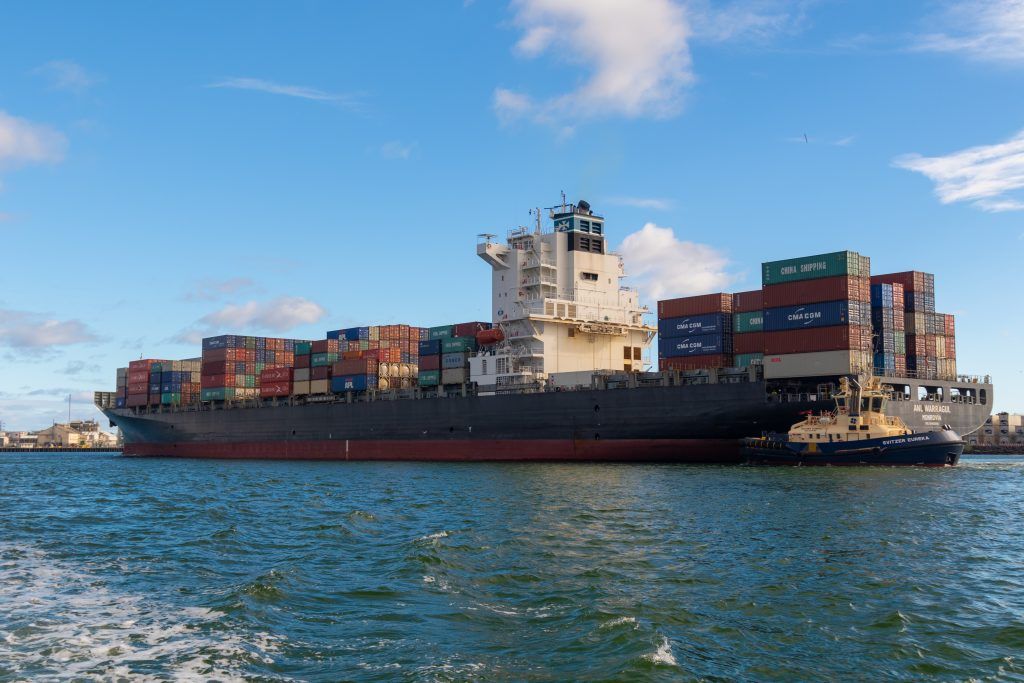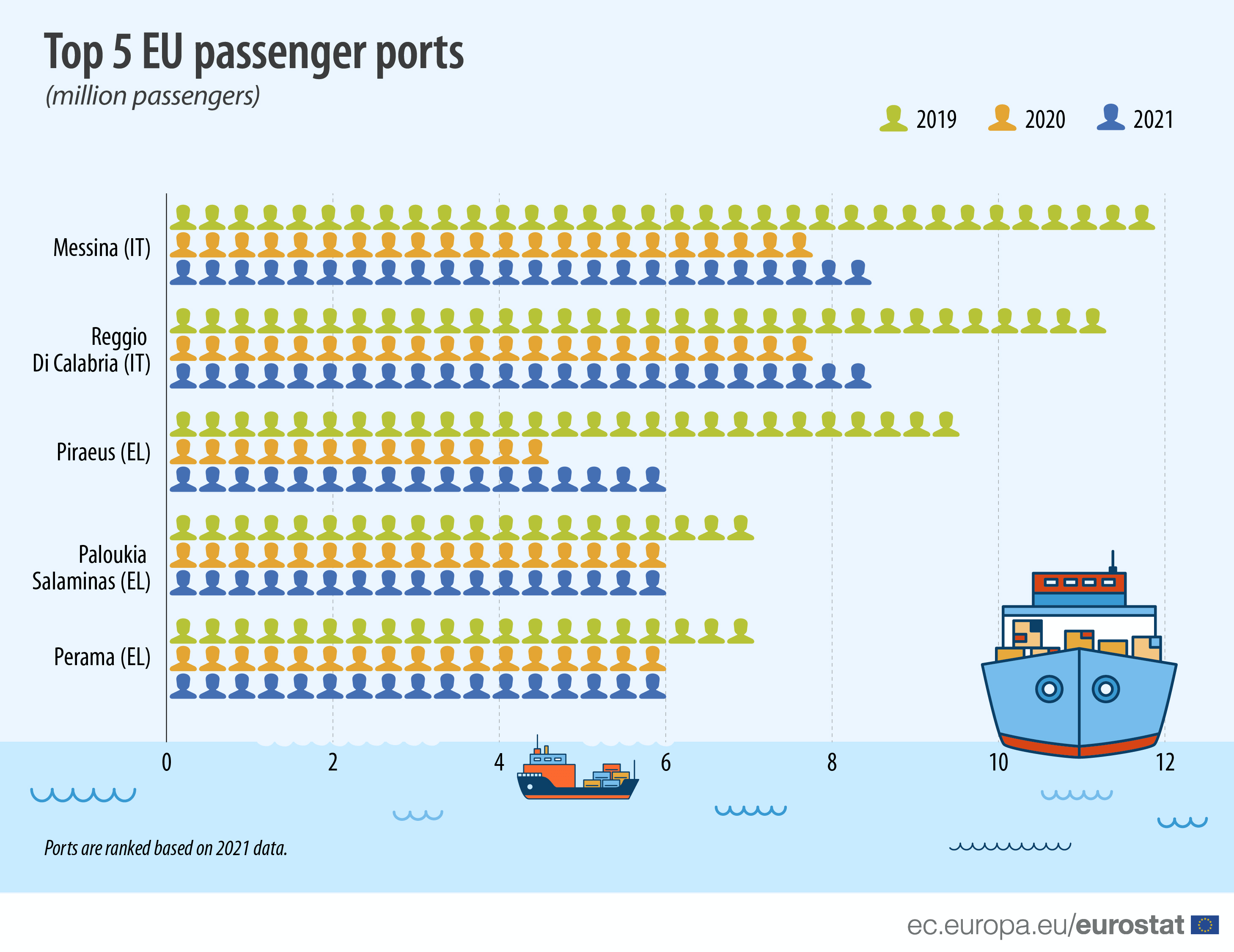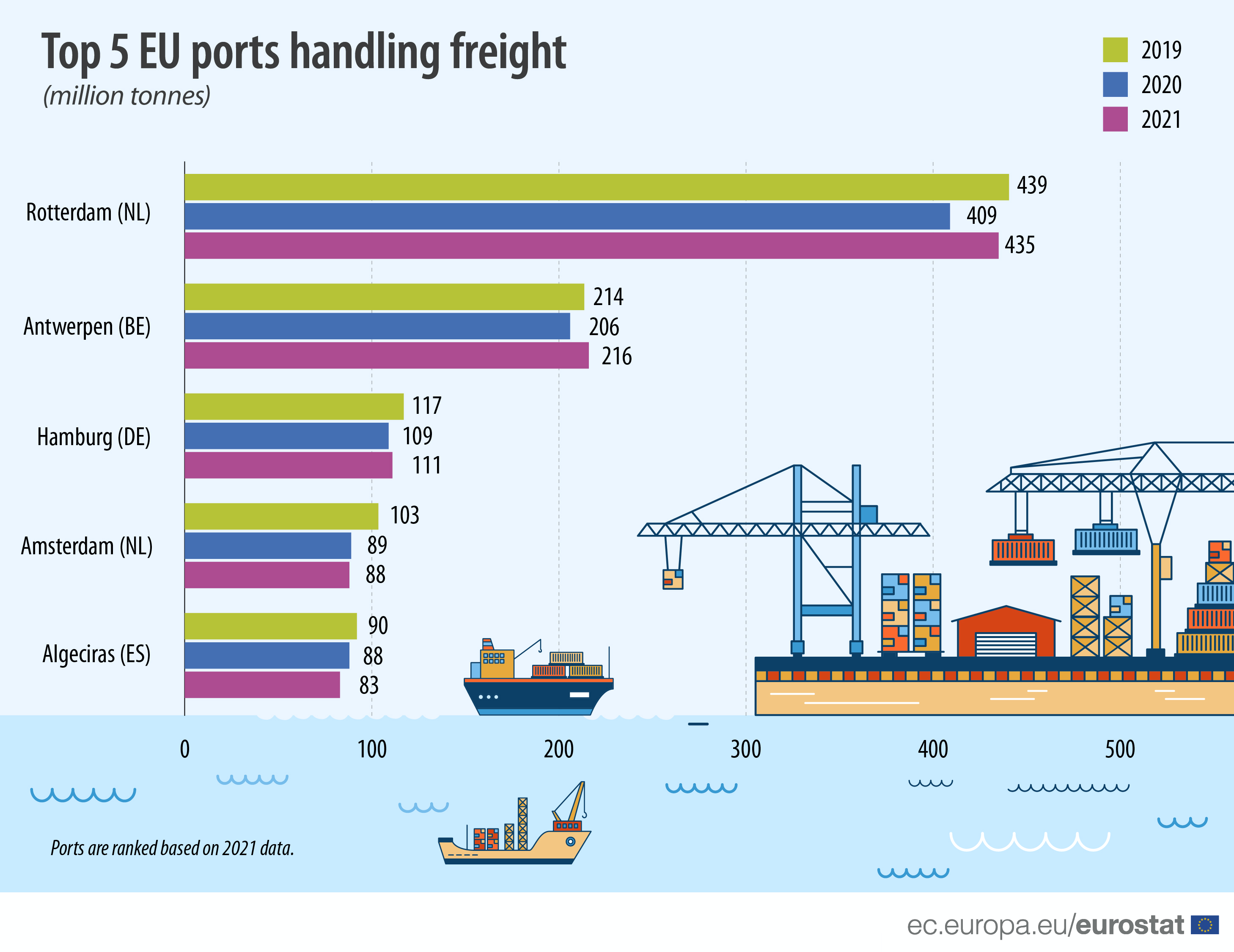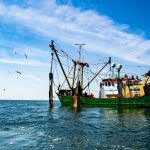Following a significant 45% fall in the number of passengers embarking and disembarking in EU ports in 2020 (compared with 2019), 2021 was more positive, with data showing a partial recovery.
Compared with 2020, the number of passengers increased by 16%, reaching 267.9 million passengers from 230 million in 2020. This is still considerably below the levels observed before the pandemic (-36% in 2021 compared with 2019) when EU ports registered 418 million passengers.
This information comes from data on maritime transport published by Eurostat recently. This article presents a handful of findings from the more detailed Statistics Explained articles on maritime passenger statistics and on maritime freight and vessel statistics.
Messina continued to be the largest EU passenger port in 2021
The port of Messina in Italy remained the largest EU passenger port in 2021, with 8.3 million passengers. This port was followed by Reggio Di Calabria in Italy (8.1 million passengers) and by three ports in Greece: Piraeus, Paloukia Salaminas and Perama (each recording 5.9 million passengers).
In 2021, the top 20 passenger ports accounted for more than 34% of the total number of passengers embarked and disembarked in the reporting EU Member States. All ports of the top 20 saw passenger traffic decrease substantially in 2021 compared with 2019, with the exception of two Italian ports: Piombino (+2%) and Isola d’Elba (+3%).

Spain’s top maritime freight transport and commerce in Algeciras, Valencia, and Barcelona |
Weight of goods handled by EU ports rebounded in 2021
The total gross weight of goods handled in EU ports in 2021 was estimated at 3.5 billion tonnes, a 4% increase compared with 2020, following a 7% drop in that year (compared with 2019), due to the COVID-19 pandemic and the subsequent restrictions put in place in the EU and worldwide. 2020 marked the downturn of a positive trend in EU port freight activity, and although 2021 levels show signs of recovery, their values were still slightly below pre-pandemic levels.
The Netherlands remained the largest maritime freight transport Member State in 2021. Dutch ports handled 590 million tonnes of goods (+32 million tonnes compared with 2020), 17% of the total volume of seaborne goods handled last year in the EU. The Netherlands was followed by Italy and Spain, each with a share of 14%.
Rotterdam (435 million tonnes), Antwerpen (216 million) and Hamburg (111 million), all located on the North Sea coast, maintained their positions as EU’s top three ports in 2021, both in terms of the gross weight of goods handled and in terms of volume of containers handled in the ports. Compared with 2020, the number of tonnes handled in 2021 decreased the most in the Greek port of Piraeus (-10%), Algeciras in Spain (-6%) and Klaipėda in Lithuania (-5%). In contrast, it increased the most in Zeebrugge (+27%) in Belgium and Constanţa (+26%) in Romania.








Leave a Reply